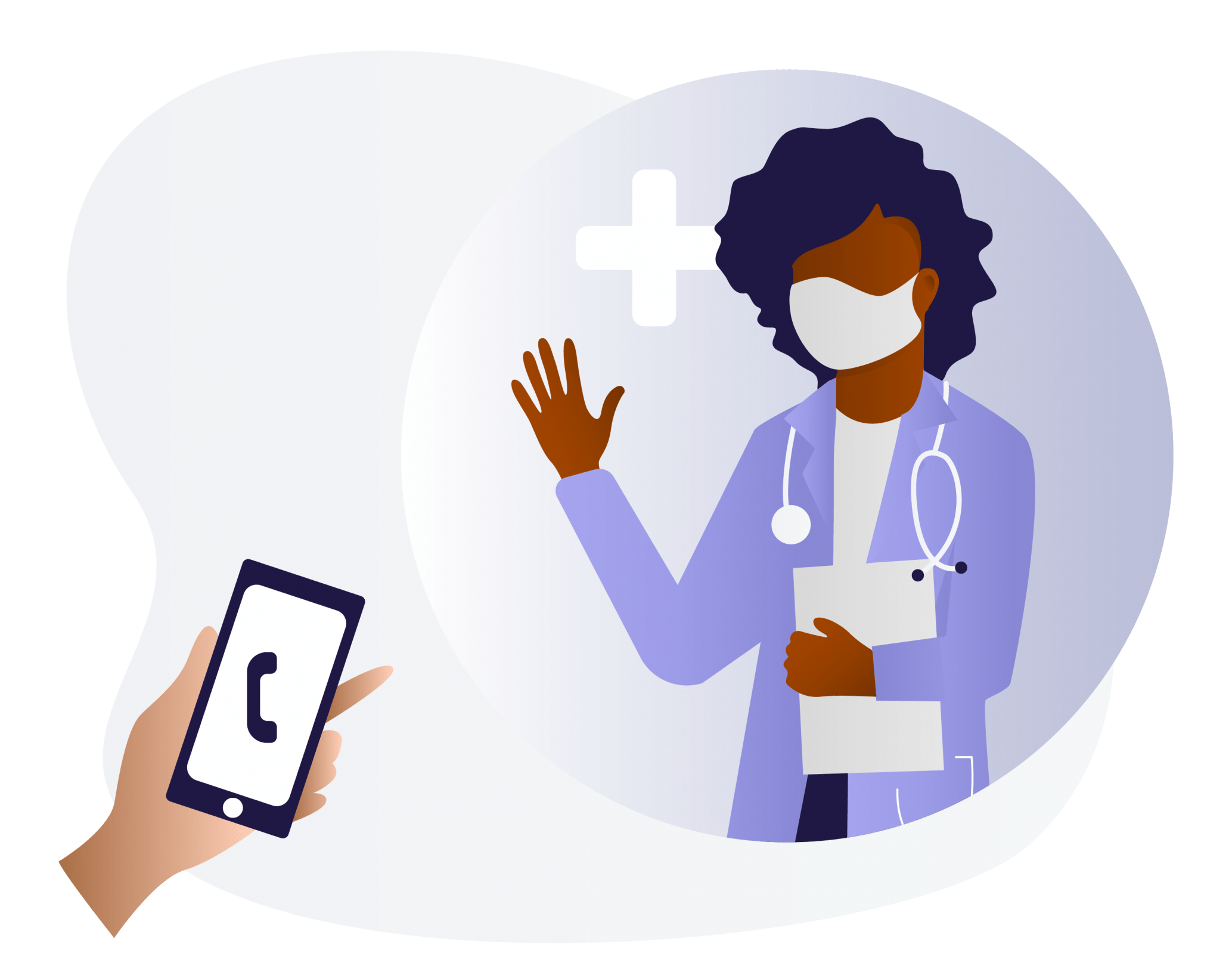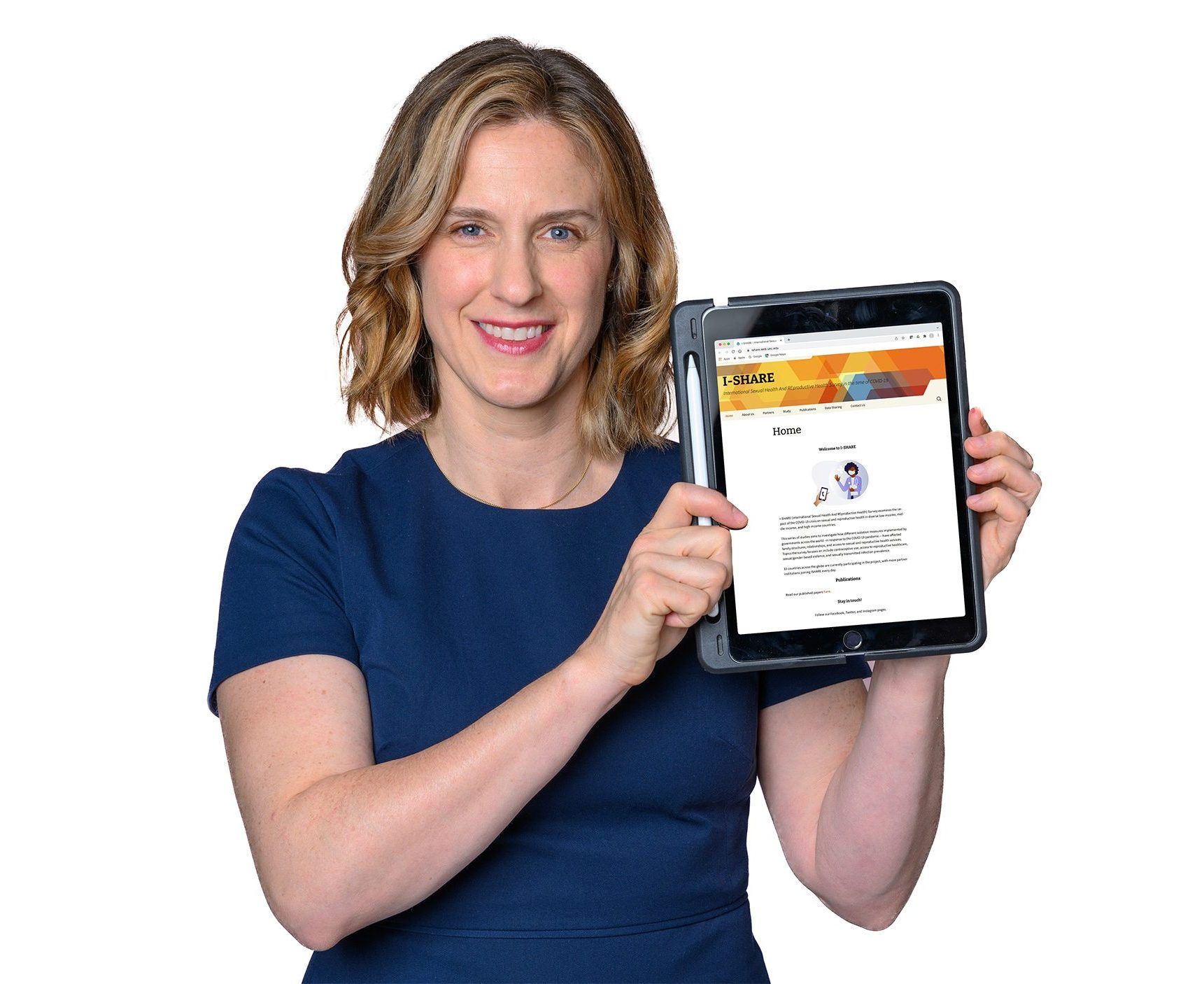
Spring 2022
INTIMATE IMPACT
The Word’s Out
Dr. Jennifer Toller Erausquin and fellow researchers were putting the final touches on a public health survey they would pilot for the World Health Organization when a stunning event took precedence: the onset of the global COVID-19 pandemic.
She was on her way home from Kenya – from an international meeting related to that project – when the world changed in what seemed like an instant. “Three days before my return, major U.S. airports started screening passengers for symptoms,” she recalls.
The associate professor in public health education couldn’t imagine then just how broadly the pandemic would affect all our lives, including her main area of research: sexual and reproductive health.
Her team was able to pivot, translating their multi-country survey into an online format and adding questions related to COVID-19 – particularly how the pandemic affected people’s sexual relationships and access to related health services.
“My expertise is ‘how do you get people to talk about a very intimate part of their lives,’” she says.
The resulting I-SHARE – International Sexual Health and Reproductive Health – Survey asked respondents in 30 countries about contraceptive use, gender-based violence, prevention of sexually transmitted infections, or STIs, and the availability and use of health services.
One-third of respondents who needed testing for STIs or HIV reported limited or no access to testing during pandemic-related lockdowns. Also, about 6% of people with casual sexual partners reported decreased condom use.
These outcomes and others were recently published in the journal Clinical Infectious Diseases, and Erausquin says there’s more to come as researchers continue to analyze results. “I’m currently examining the impacts of country-level differences in wealth, gender equality, and COVID-19 mitigation measures.”
“Dr. Erausquin has been a remarkable leader within the I-SHARE consortium,” says Dr. Joe Tucker, principal investigator for the project and an associate professor at both UNC School of Medicine and the London School of Hygiene and Tropical Medicine. “She has helped mentor trainees, lead analyses, and write scientific manuscripts that represented a terrific output from this rich collaboration.”
Erausquin especially enjoyed the work, she says, because accommodations due to the pandemic unexpectedly increased inclusivity in research, “sort of leveling the playing field.” For example, more scientists, including junior-level researchers, could join international collaborations when meetings went virtual.
The survey results underscore the importance of offering sexual health care services, even during a global crisis.
“In some ways, we were caught off guard by COVID-19,” Erausquin says. “Public health responses focused primarily on protection from respiratory disease, and plans to address potential ripple effects weren’t necessarily well-articulated in most locations. The sudden reduction in access to health care dramatically affected people’s lives.”
The crisis did birth some positive innovations, she says, such as an increase in telemedicine visits related to reproductive health and a rise in at-home self-testing for STIs.
”Ultimately, it’s about countries and localities calibrating responses to balance multiple public health goals,” Erausquin says. “When overly stringent lockdown measures also restrict people’s access to condoms, ability to see a health care provider, or STI testing, we’re doing a different kind of harm. It’s a very difficult balancing process, but we need to figure it out. This will not be the only pandemic that our world sees.”

